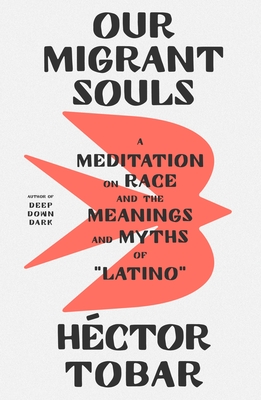Chapter 1: Empires
byChapter 1: Empires explores the deep impact of historical empires and the injustice they have inflicted on the Latino community in the United States. From an early age, children in the U.S. are immersed in the stories of great empires, often depicted as valiant forces combating oppression. These narratives, frequently conveyed through films and literature, resonate with the shared experiences of marginalized groups, especially Latinos, who grapple with migration and the erasure of their culture. The author highlights how these grand tales connect with the struggle for identity, as many Latino communities continue to live with the legacies of colonization and forced migration.
The chapter dives into the history of European conquests, racial ideologies, and the forced migration of people, showing how these events have shaped the identity of Latinos in the U.S. The author notes that stories of events like the arrival of enslaved Africans or the mistreatment of Native populations often get condensed in popular culture, turning complicated histories into simplified narratives. These simplified accounts frequently fail to address the painful truths of colonialism, leaving out the long-lasting impacts of racial discrimination on marginalized communities. While these historical stories are essential for understanding the American experience, they often overlook the real and lived struggles of Latinos who continue to deal with the consequences of these historical injustices.
In cities like Los Angeles, which has a large Latino population, the author discusses how the film industry plays a role in shaping and sometimes distorting Latino identities. Films and television shows often use Latino characters, but their portrayal rarely matches the complexity of real-life Latino communities. Instead, media often reinforces stereotypes, presenting a limited and sometimes negative view of Latino cultures. This narrow portrayal in mainstream media helps to shape public perception, influencing how both Latino individuals and the wider public view Latino cultures and histories. By reducing the multifaceted nature of Latino life to a few predictable tropes, popular media limits the understanding of what it means to be Latino in America, overshadowing the richness and diversity of Latino experiences.
The chapter also draws connections between physical barriers, such as the U.S.-Mexico border, and the larger forces of empire that impact Latino families. These barriers represent more than just geographical separation—they symbolize the long-standing imperialist forces that have shaped the movement and existence of marginalized groups. For many Latino families, the constant threat of deportation and the separation of loved ones is a daily reality, leading to widespread feelings of uncertainty and fear. The border serves not only as a physical line but as an emotional and psychological boundary that constantly reminds these communities of their precarious position within the larger societal structure. The narrative highlights the ways in which these external threats contribute to the broader sense of invisibility and marginalization felt by Latino communities in the U.S.
Additionally, the chapter integrates personal stories from individuals who share the emotional burden of migration and the struggle for dignity in a system that often disregards their humanity. Through anecdotes from students and others in the community, the author shows how migration is not only about crossing physical borders but also navigating emotional and cultural ones. These personal stories of loss, resilience, and perseverance provide a deeper understanding of the challenges faced by Latino families and the weight of generational trauma. The individuals’ journeys highlight the strength found in the face of adversity, showing how the Latino community has fought for its place in the U.S., often in the face of overwhelming odds and societal rejection.
In conclusion, the chapter argues that mainstream narratives about empire and migration, particularly those that are romanticized or simplified, often overshadow the true experiences of Latino people in America. These prevailing stories reduce the complexity of the Latino experience to one-dimensional depictions, neglecting the deep history of struggle and resilience within these communities. The reality of Latino existence in the U.S. is much more than just survival—it is a story of overcoming systemic oppression and seeking belonging in a society that often marginalizes them. Through the lens of empire and migration, the author urges readers to rethink the dominant narratives and embrace a more nuanced understanding of Latino identity and history. This reflection calls for a deeper acknowledgment of the complexity of Latino lives and the ongoing fight for equality and recognition within the larger American landscape.

